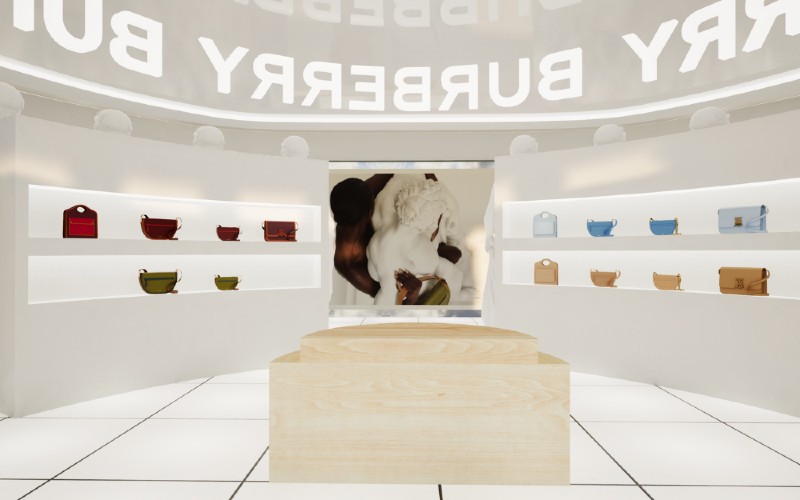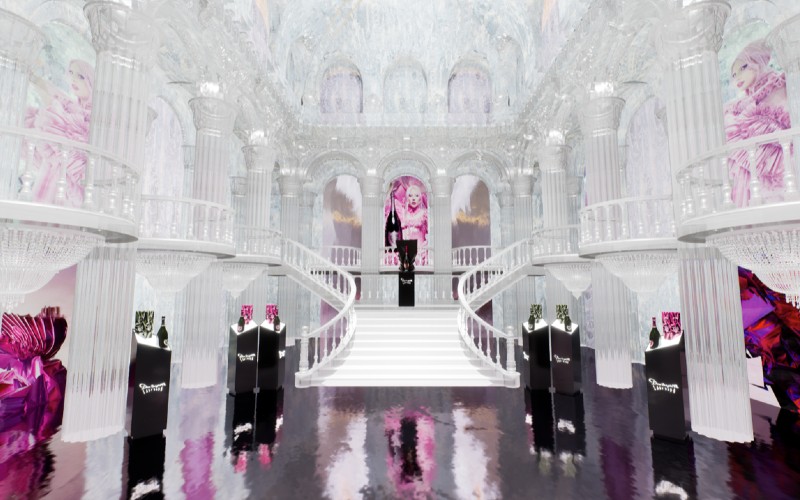Olga Dogadkina was always destined to lead a company of her own.
Thanks to entrepreneurial parents, the Russian, who moved to London a decade ago, was immersed in business from a young age.
However, the founder of immersive technology platform Emperia highlights one crucial difference.
“My dad runs an advertising agency while my mum runs a real estate agency – so throughout my life I’ve been quite immersed in how it feels to run a business,” she says.
“But there’s always been a limit with those businesses: you can’t aim to become the absolute biggest company in the world, only in one particular area.
“That is what drives me: if I saw a ceiling, I’d become bored. With this, I don’t see a ceiling. If we run to the end of one market, we go into another one.”
When she speaks to TechBlast, Dogadkina is about to head off to the airport to visit family and friends in her native country for the first time since the start of COVID-19.
Idea spark
She will have an impressive story to tell. Emperia, founded in 2018, has expanded from its origins creating tech for commercial art galleries into high-end fashion and now elite football with the likes of Southampton FC.
The idea for Emperia, founded in 2018, sparked when she was consulting for Microsoft on a fashion-related project and tried virtual reality for the first time.
“It just blew my mind: I thought ‘this is what’s going to change the way people shop’,” she says. “You can create a picture for people who are sitting at home enjoying a glass of wine; they can enjoy a shopping experience they would normally only be able to access in store.”
By building a virtual space in full 3D – either a digital copy of a physical store or showroom, or a completely different concept – it can recreate the brand’s collection with 100% precision, allowing for a detailed 500% zoom on products with full material and colour integrity.

Art gallery created with Emperia’s tech
Its partnerships in the art world include Getty Images, Maddox and Christie’s, while in fashion Burberry and Harrods have signed up. A number of other global fashion houses have commissioned Emperia’s technology to develop their target audiences in the coming months.
For these labels, giving customers a memorable experience is as important as the quality of the garment or accessory they are buying. Walk into a luxury brand outlet and you won’t find yourself queueing for the fitting room; rather, you’ll be treated to a glass of bubbly and a highly personalised concierge service.
Buying that Chanel dress online just wouldn’t be the same. “Chanel doesn’t sell anything but lipsticks online because they don’t want to dilute this experience,” explains Dogadkina.
“eCommerce is quicker, easier and smoother, but for luxury brands, the experience isn’t there. If you picture going to a store on Bond Street, it’s all about experience, service and that’s what really makes the brand stand out.
“That was the reason, even back then, brands didn’t really want to go into eCommerce – and it’s still the biggest concern.”

Emperia’s virtual space for Burberry
Emperia creates a virtual store to represent the brand which it can then use continuously as a virtual flagship rather than a marketing one-off. “They can then continuously update their products,” says Dogadkina.
The navigation is similar to Google Maps, with users able to click on the floor to move, and hold the button and swipe to turn. Clicking on a product gives you a zoomed-in view which you can rotate and examine in great detail. “You can really see every button, every stitch on a jacket,” she adds.
Live chat functionality allows a salesperson – or even designer – to walk people through the virtual stores, giving them that personalised VIP experience.

Harrods teamed up with Emperia to launch Dom Perignon’s Lady Gaga collaboration
The platform is not just for the big beasts of the catwalk, with a Software-as-Service platform making it possible for SMEs to harness the power of virtual shop floors or exhibitions. And at around 30 minutes to create a space and just a few hours to render it in the virtual world, a brand can be up and running within a day.
“The biggest brands are great for our visibility, but we want to make it accessible and available for smaller brands that run Shopify stores. We aim to become the front end of eCommerce,” says Dogadkina.
Football support
Emperia’s sports projects include Lionel Messi’s Paris St Germain, Serie A giants Inter Milan and Premier League club Southampton. Users can access the 3D spaces using smart devices if they don’t have a headset.
“We see the applications across the board – wherever something is needed to create an experience, engage the users in a better way and bring people in. For example, we can help fans discover the story of the club.”

Virtual space for Southampton FC
One positive to come out of COVID is the London-based firm no longer has a physical office and has employed people from eight countries as a result. “When we first started, we expected to be hiring around the UK or in London. Then COVID hit and we found that actually having remote staff works so well and there’s absolutely no need to have an office for people to connect.
“We have a company retreat a few times a year which is focused on team bonding – bringing everyone together and allowing them to get to know each other.”
She adds: “Every day as an entrepreneur is something new: as you scale and more people join, there are so many more things to think about, things like company culture.
“I feel that as the company grows, I am growing with it.”
SportVR

